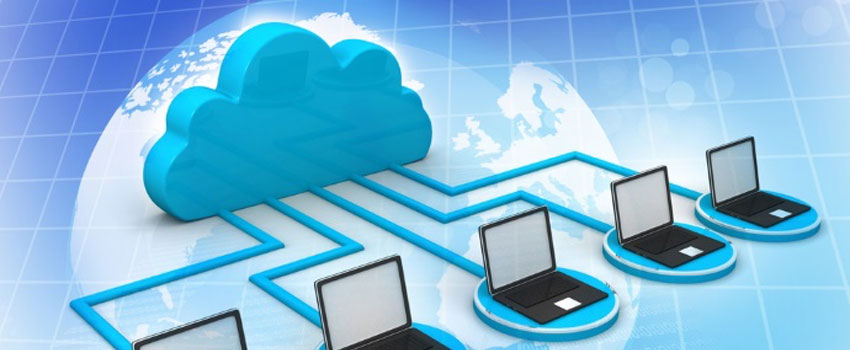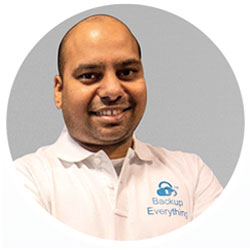Why keeping a Backup is a Good Idea?
DIFFERENT WAYS OF BACKUP
A number of ways exist to help you back up your PC. The data that needs to be backed up is usually either personal data or work-related. Both kinds of data usually use different backup methods. This is because a business cannot risk valuable information being lost. This is why they can choose to go with a more costly route, but do not wish to take a risk. While, personal data is mostly less sensitive, and a cheaper option can be chosen.
The most efficient and popular methods of backup include external hard drives, cloud storage, disk cloning and Network Attached Storage (NAS). Let’s see how they can be used to back up your data.
External Drive Backups
External hard drives behave the same way as the hard drive on your computer. They act as physical storage devices capable of storing information up to a certain capacity. In case of a drive failure, you can always recover this information from the external drive.
Users are also presented by the option to manually choose the data they wish to backup from their PC. This can help utilize the limited storage space of the external hard drive. Users should also be careful about routinely backing up information on this drive. A backup to an external drive can be considered a local backup. This is because the external hard drive can be kept close at hand.
A backup program can be used to automatically backup data. But, users usually choose to manually choose the data they wish to save. Windows and MAC users are usually given the option to create an automated process for backups. Windows has its own built-in software to automatically create backups to external drives called Windows Backup. MAC users also have a similar option known as Time Machine.
External drives are plug and play devices. This means that no specific backup program is needed to back up to an external drive. Users can simply copy and paste individual files on the external hard drive from their Windows PC. This makes the method extremely simple and efficient.
However, external hard drives also present a number of disadvantages. For one, the storage medium is physical. This means that any potential harm could result in the data being lost. If the user is not aware of the damage to the external hard drive, the purpose could be lost. Another issue with external hard drives is the limited storage capacity. This means that in case the data is greater than the storage size, another external hard drive has to be purchased.
Disk Cloning
Similar to external hard drives, a ‘clone’ is used to create an exact copy of the same file as an image backup. The one-to-one copy created contains all of the settings of the original configuration. Cloning a hard drive for backup purposes helps copy the entire drive on to another drive.
The file created in a disk cloning process is a ‘system image’. The medium used for cloning can be a hard drive, DVD drive or any similar storage medium. When the clone is loaded on to the computer, the user recovers an exact copy of the original image.
To clone a disk, you will need the source and the secondary drive where you’ll copy the disk. Make sure that the secondary drive has enough space to copy all the contents of the source.
To copy the contents, you can use any backup tool that helps facilitate the cloning process. The software usually details several options available within the cloning process. The clone can generally be plugged in and booted into the new system.
The process might take some time because of the large volume of data involved. After the cloning process is completed, the software might ask you to schedule another one. For backup purposes, it is recommended to keep regular backups. This means that the primary source will always have new information. By regularly planning for updates on your clone, the risk of more data loss will decrease.
Clones can help in keeping a copy of the entire system as a backup. But, they present similar disadvantages to that of an external hard drive. In case of any malfunction or harm to the clone, the entire backup can be lost. Again, the goal of keeping a backup loses its purpose. Clones are also limited by storage space. This can present an issue of scalability.
Network Attached Storage (NAS)
A Network Attached Storage (NAS) can link several PCs together. As such, all of the connected systems can share a central storage platform. This creates a ‘network’ where multiple computers can see the files being transferred and saved.
As a method of backing up data, Network Attached Storage (NAS) can be advantageous. For one, it provides ease of access for multiple users. This means that the chances of another user having the file go up. The network is created over the internet usually over a Local Area Network (LAN).
When the data can be shared over a network such as with Network Attached Storage (NAS), the system acts as a private cloud. The backup method involves creating a copy of the files being shared over the private network. This makes the process highly automated. The system can also be created at an affordable cost.
A major disadvantage of a Network Attached Storage (NAS) is being sensitive to any outside disasters. In case of any harm to the physical network, the data can be lost.
Cloud Storage
Cloud storage is a model within cloud computing that makes use of the internet. Over an internet connection, users can upload valuable data online. Cloud storage provides a virtual space to keep the information preserved. As a method of keeping backups, it can be highly resourceful.
A number of cloud storage services help users store their personal information from the PC. The data stored on your computer is uploaded on the cloud. The information kept on the cloud storage service is backed up and can be accessed at any time. The data is stored on servers located in data centers. The cloud storage service is responsible for keeping these data servers maintained.
Other than helping keep information backed up, cloud storage provides easy access. Users can access the information stored on the cloud storage platform through a number of devices. This could be a mobile app, tablet or your personal computer.
To back up data from your PC to the cloud, you’ll first have to decide upon which online backup service you want to use. Google Drive, OneDrive and Dropbox are popular examples of cloud storage platforms. Usually, a backup program is not required to upload data from your PC. Users can manually choose the data they wish to upload.
Once the data is uploaded to the cloud, it can be accessed at any time. In case of data loss from the original source either due to the local drive fails or malfunctioning of PC, users can always backup and restore the data from the cloud. Unlike other physical storage mediums, as the cloud exists as a virtual space, it is more secure from such risk.
In a cloud storage platform, users can upload any kind of personal data such as photos videos or other private staff. But, if the storage space required is for business purposes and sensitive data is getting stored, then users are always recommended to subscribe to a cloud backup platform. A cloud storage platform is different from cloud backup platform. This is because the cloud backup platform is entirely dedicated to the backup process. In a cloud backup, your data is continuously being uploaded to the cloud servers from your PC automatically. So, instead of manually uploading data, this process is automated. It is very helpful for businesses that can’t afford the loss of data from any human mistake or PC malfunctioning.
Storage of data in cloud servers can be vulnerable to hacks over the internet. This is why users should choose a reliable and secure cloud storage platform.



